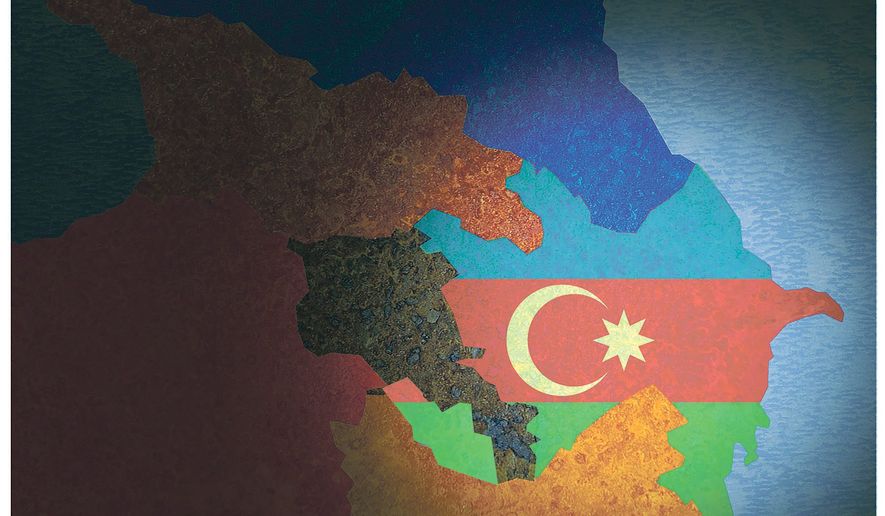OPINION:
The United States must be consistent in its treatment of post-Soviet separatist conflicts.
These past months, the White House and Congress have rightly supported Ukraine against the direct Russian military-involved separatist aggression and attack on their territorial integrity. The president, vice president and prominent members of Congress have all considered sending military support to the Ukrainians to help ward off further Russian hostility.
Other nations have expressed the same. “We should be giving them the weapons they need to defend themselves against an external threat. This is about their territorial integrity,” said former British Defense Secretary Liam Fox in an interview with the Daily Mail this past February.
In 2014, when the corrupt former president of Ukraine abandoned his office, the people of Ukraine took that opportunity to choose a better future. They called for democracy, free trade and rule of law. But they did not make it very far.
Russia occupied and attempted to annex a portion of Ukraine’s sovereign territory and since then, it has systematically persecuted ethnic minorities and others who oppose its occupation. This conflict has left nearly 6,000 dead and displaced more than a million people.
Despite attempts at dialogue and cease-fires, Russia continues to systematically eat away at Ukraine. America, therefore, continues to threaten further sanctions and consequences against Russia. America has pressed its European allies to stand up to Russian President Vladimir Putin — and that’s good and right.
But why is America not doing the same for its ally in the Caucasus region, for Azerbaijan? Where is the consistency necessary for a sustainable and successful U.S. foreign policy? For more than 20 years, Armenia has waged an ongoing, illegal occupation and ethnic cleansing in Nagorno-Karabakh and seven other adjacent regions of Azerbaijan — in violation of its sovereignty and territorial integrity.
Nagorno-Karabakh and these other districts have historically belonged to Azerbaijan and have been recognized as belonging to Azerbaijan by the international community. Yet, they have remained under Armenian occupation for more than two decades, since 1992. Then, following a violent and bloody conflict, Armenia occupied 20 percent of Azerbaijan (including the noted areas) and plunged the south Caucasus region into an ever-lingering conflict.
The occupation of a country’s internationally recognized lands by another country should be unacceptable, period.
International law clearly supports Azerbaijan’s position. Therefore, the Armenia-Azerbaijan conflict should be settled in accordance with the existing United Nations resolutions on the conflict and should be solved unequivocally.
The United States must stand up not just for Ukraine, but the broad principle of territorial integrity and sovereignty. The U.S. must be consistent in their assessment of conflicts in Ukraine, Georgia and Azerbaijan. Belatedly, many now admit that had we been more consistent vis-a-vis conflicts between Armenia and Azerbaijan, and in Georgia early on, the tragic events in Ukraine could have been avoided.
The risk of inconsistency is not solely to our allies, but to the principles of freedom and respect for international law as well as basic regional stability in general.
• Maayan Jaffe is a former editor-in-chief of the Baltimore Jewish Times and a regularly contributing writer to JNS.org.




Please read our comment policy before commenting.